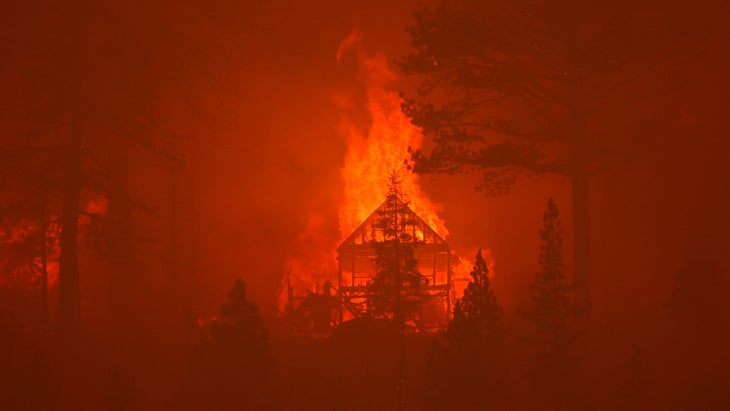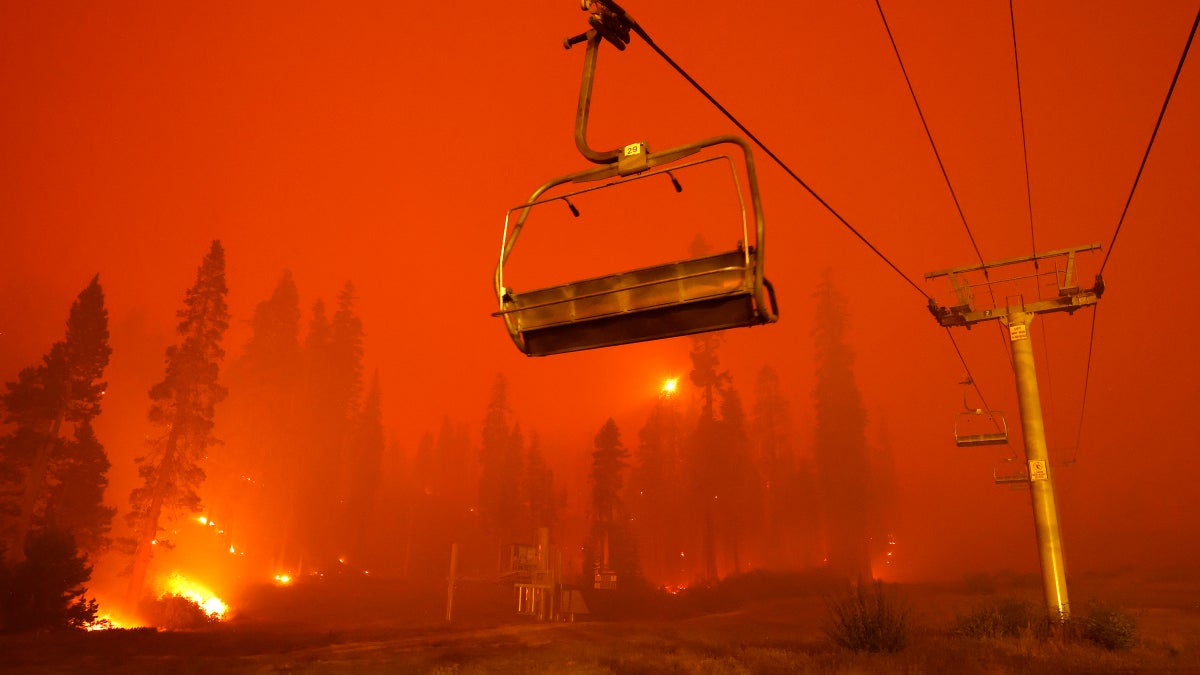No products in the cart.
Outdoor Adventure
Climate Change Has Ruined Summer
The climatic whiplash feels unbearable this week.
As we approach Labor Day weekend, the traditional end of summer, it seems like every corner of the country is in crisis mode, from flames in the Midwest and West to flooding in the South. If you’re not directly experiencing it, I’m sure you know someone who is. I am frantically scrolling through the news and social media updates: one second I’m watching my brother’s best friend evacuating in New Orleans, his car filled with other people’s pets; the next I’m hearing about a former coworker shepherding her parents out of the South Lake Tahoe house they’ve lived in her whole life, rushing them away from the path of the fire.
So many of the disasters—and it’s hard to call them “natural disasters” anymore—are record-breaking and defying historic norms in ghoulish ways. In California, 6,913 fires have already burned 1.76 million acres this year. The massive Caldor Fire currently running along the south end of Lake Tahoe is only 18 percent contained, fueled by low humidity and high winds. It has burned 200,000 acres and threatened more than 34,000 homes, devastating a center of recreation and tourism at the height of its season.

Another iconic summer destination, Minnesota’s Boundary Waters Canoe Area Wilderness, located amid the usually lush Superior National Forest, is also shut down due to extreme fire danger as multiple conflagrations converge. Homes have been torched, permit holders have been turned away, and outfitters are forfeiting a chunk of their peak business.
In the soaked Southeast—where lives have been lost in multiple floods this year—residents are still trying to track down loved ones and cope with flooding, power outages, and damage as the fallout from Hurricane Ida continues.
And California has closed all of its national forests until September 17, a similar move being made across the country as the natural and human resources we’ve counted on to sustain us there—from river flows to wildland firefighters—are spread far too thin to be safe. Meanwhile, as we reported last month, toxic algal blooms have shut down hundreds of lakes, rivers, and beaches.
This is what Labor Day weekend looks like during a climate crisis: systems maxed out, multiple catastrophes converging, and everything unfolding on top of geopolitical and public-health crises. There’s too much to concentrate on, more time spent panicking than relaxing.
I’m sure I’m not telling you anything new, but doesn’t it finally feel like the line between being aware of what climate change could look like and experiencing the disastrous impacts of our inaction has become incredibly thin in real time? We’ve known that the West’s megadrought is real, we’ve known that tropical storms intensify when water heats up, and we’ve known that the ice sheets are shrinking and old growth is dying. But it’s still hard to concretely comprehend how bad the impacts are—and what the destruction will truly feel like—until it’s in your lungs, chasing you out the door, and harming the people and places you love.
This summer is a snapshot of how our future could continue if we keep burning fossil fuels and neglecting the limits of our natural resources. The climate crisis is happening now. It is hitting historically marginalized areas the hardest, but rich people in expensive lakeside mansions can’t escape it either.
We are not even close to the end of fire or hurricane season. So what do we do, those of us not evacuating from flames and floods? Call all your representatives, demand we curtail fossil-fuel use, pressure the people in power, and look around your local community for opportunities to transition to a carbon free future. Climate change is everywhere, it’s affecting everything, and it’s only going to get worse if we don’t make changes now.
Source link

